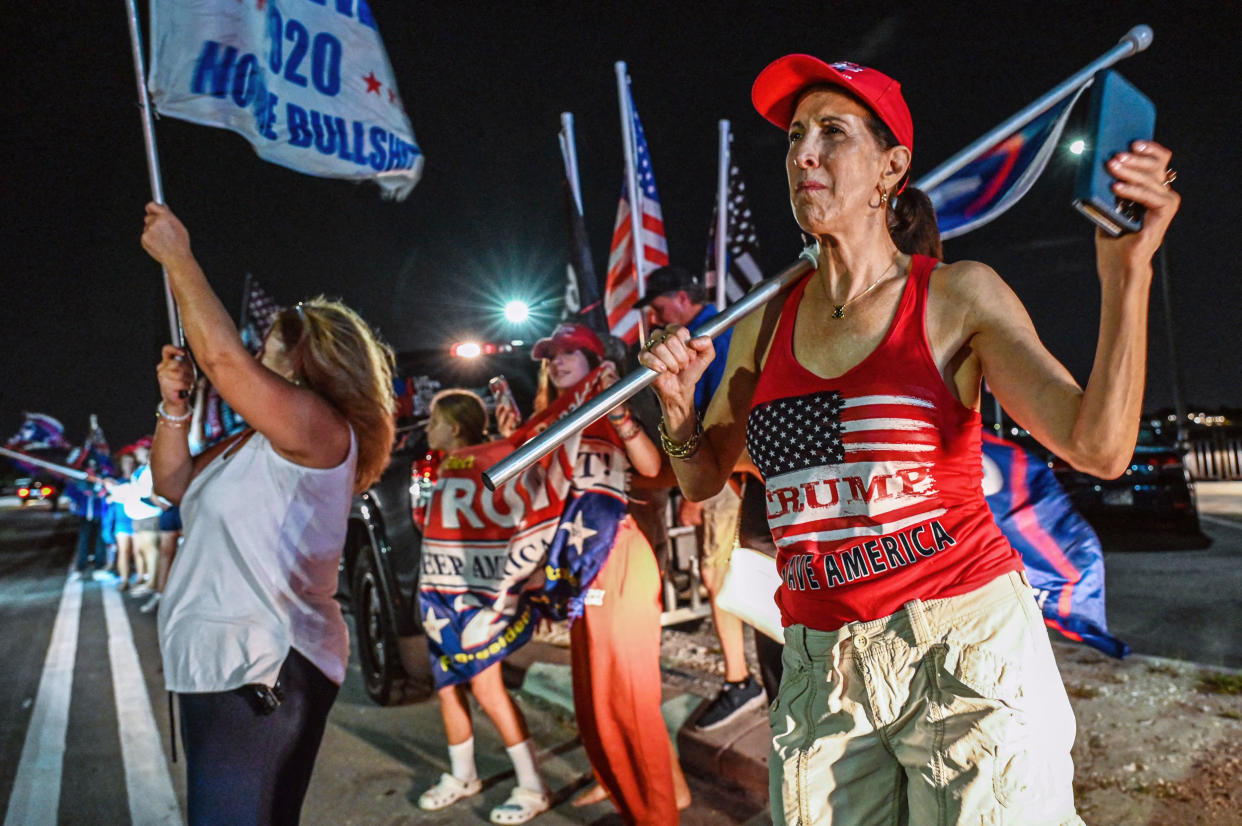Judge indicates he may not unseal much, if any, of Trump Mar-a-Lago search affidavit
The federal magistrate judge in Florida who approved the search of former President Donald Trump’s Mar-a-Lago compound is lowering expectations about how much, if any, of the search warrant affidavit he'll ultimately release following a motion from media organizations seeking its disclosure.
U.S. Magistrate Judge Bruce Reinhart, in a written order Monday, noted the "intense public and historical interest in an unprecedented search of a former President’s residence," but said he still could ultimately conclude that it would be best not to release any of the affidavit because the redactions would render it meaningless.
Some documents related to the search warrant have already been released, showing that a number of classified documents had been found at Mar-a-Lago. Under the law, Trump was not supposed to possess any presidential records, which are supposed to be under the control of the National Archives. The search warrant affidavit would reveal more of the justification for the search and some of the evidence that the government presented to the judge.
Reinhart also said in Monday's order that he remains confident in his decision to authorize the search warrant, having found "probable cause that evidence of multiple federal crimes would be found" at Mar-a-Lago, including obstructing an investigation.
"Having carefully reviewed the Affidavit before signing the Warrant, I was — and am — satisfied that the facts sworn by the affiant are reliable," Reinhart wrote.

News organizations, including NBC News, had asked that the affidavit be released.
Reinhart's written order on Monday followed a hearing last week in which he gave the government until Thursday to propose redactions if the search warrant affidavit were to go public. Reinhart wrote that he agreed with the government that releasing the affidavit would provide a roadmap to the investigation, could chill cooperation from future witnesses, and could endanger investigators.
“As the Government aptly noted at the hearing, these concerns are not hypothetical in this case,” he wrote, noting that “there have been increased threats against FBI personnel since the search."
The ruling cited NBC News reporting on the attack on the FBI field office in Cincinnati following the Mar-a-Lago raid. As NBC News reported, the Trump supporter who attacked the FBI field office had posted calls for violence against the FBI on Trump's Truth Social platform before the attack.
“After the public release of an unredacted copy of the [inventory of the search], FBI agents involved in this investigation were threatened and harassed," Reinhart wrote. "Given the public notoriety and controversy about this search, it is likely that even witnesses who are not expressly named in the Affidavit would be quickly and broadly identified over social media and other communication channels, which could lead to them being harassed and intimidated.”
He added that the affidavit identifies “not just the facts known to the Government, but the sources and methods … used to gather those facts. That information is not known to the public. For the reasons discussed above, the Government has a compelling reason not to publicize that information at this time.”
But he still wants to see the proposed redactions before making an ultimate decision, the judge wrote.
"I must still consider whether there is a less onerous alternative to sealing the entire document," he wrote. "I cannot say at this point that partial redactions will be so extensive that they will result in a meaningless disclosure, but I may ultimately reach that conclusion after hearing further from the Government."
Reinhart foreshadowed his comments in open court on Friday where he mused about making redactions that are so extensive that it’s “meaningless gibberish.” He then asked if that’s the news media’s problem, not the government’s.
“So they can have it. It may not be useful, but why can’t they have it?” Reinhart asked the Justice Department’s top national security official, Jay Bratt, who argued that the redactions posed too much of a burden on staff and that the heavily redacted documents didn’t serve the public good.
“I’m not sure that’s the court’s concern,” Reinhard responded.
